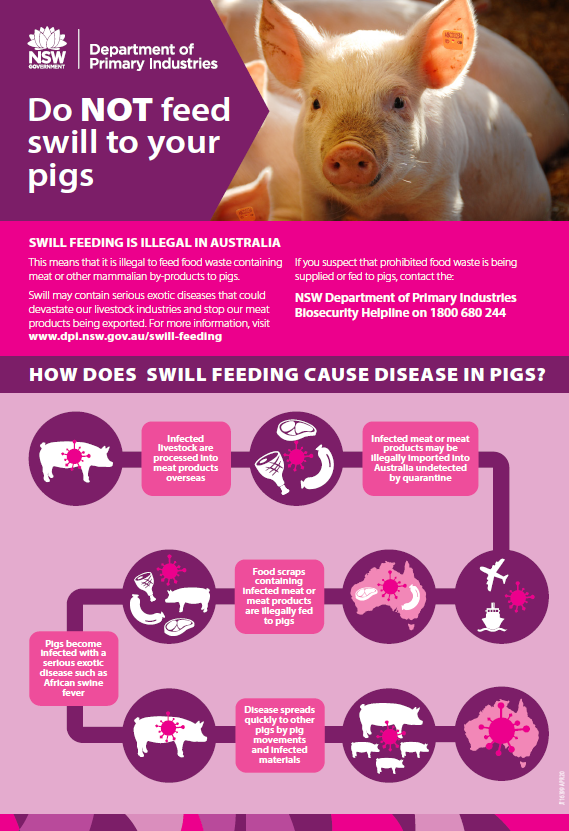
Exercise Piggyback testing DPI’s response to African swine fever
In animal disease outbreaks, preparedness is key. NSW DPI jumps on the pigs back to understand how we might respond to African Swine Fever.
African Swine Fever (ASF) is a highly contagious, exotic viral disease affecting both domesticated and wild pigs, which has no vaccine and no treatment.
While Australia is currently free of the disease, its presence in almost all other continents, and its rapid spread in Asia presents a huge risk locally.
An outbreak would cause significant animal welfare, environmental, economic and social impacts, costing the NSW pork industry $194 million, the loss of 36,000 jobs, as well as the closure of export markets. On the back of an ASF outbreak across Asia, Rabobank’s Global Animal Protein Outlook 2021 identified ASF as one of the greatest risks for global trade.
In NSW, DPI, Local Land Services and the pork industry are working together to prevent ASF in pigs, as well as preparing to respond if an outbreak occurs.
Recently these efforts included a DPI led exercise, named Exercise Piggyback. This cross agency collaboration was designed to test the state's capacity to manage the response to, and recovery from the virus.
DPI’s Chief Veterinary Officer and Group Director Animal Biosecurity Dr Sarah Britton explained Exercise Piggyback provided a timely and important opportunity to test the state emergency management arrangements for an ASF outbreak in NSW.
“NSW produces 861,000 pigs annually and the feral population is approximately 25 million Australia wide. The importance of preparedness to respond and recover from ASF cannot be underestimated,” said Dr Britton.
“The exercise tested the response, destruction, disposal, decontamination, recovery and impact assessment capabilities of the combined agencies to an ASF outbreak scenario.”
Held across sites in Orange and Sydney, Exercise Piggyback was conducted by Resilience NSW on behalf of the State Emergency Management Committee (SEMC), as part of a regular program to build practical skills and collaboration with specialist teams in the event of biosecurity emergencies in NSW. The exercise proved a highly valuable collaboration between government and industry to manage the response and recovery of a biosecurity event.
“NSW is ASF free however the events of 2020 have shown the benefits when government departments unite to respond to a crisis, as we can scale up and utilise expertise across many agencies,” said Dr Britton.
“By involving the other agencies in the exercise, they were able to understand their role in a biosecurity response, how they can assist, what expertise they bring and gain understanding of the national system that underpins animal biosecurity responses.”
“Exercise Piggyback demonstrated the value of partnership and the strength of managing the response to any biosecurity threat together.”
Following Exercise Piggyback, DPI will continue to work with Resilience NSW and the SEMC to further bolster the state’s ability to respond to an outbreak of ASF and minimise the risk to the industry, the economy and to communities.
How can I help?
If you suspect African Swine Fever in pigs, you must report it to your Local Land Services District Veterinarian immediately on 1300 795 299 or call the 24 hour Emergency Animal Disease Hotline on 1800 675 888.

Download infographics and printable resources about protecting pigs from exotic diseases.

